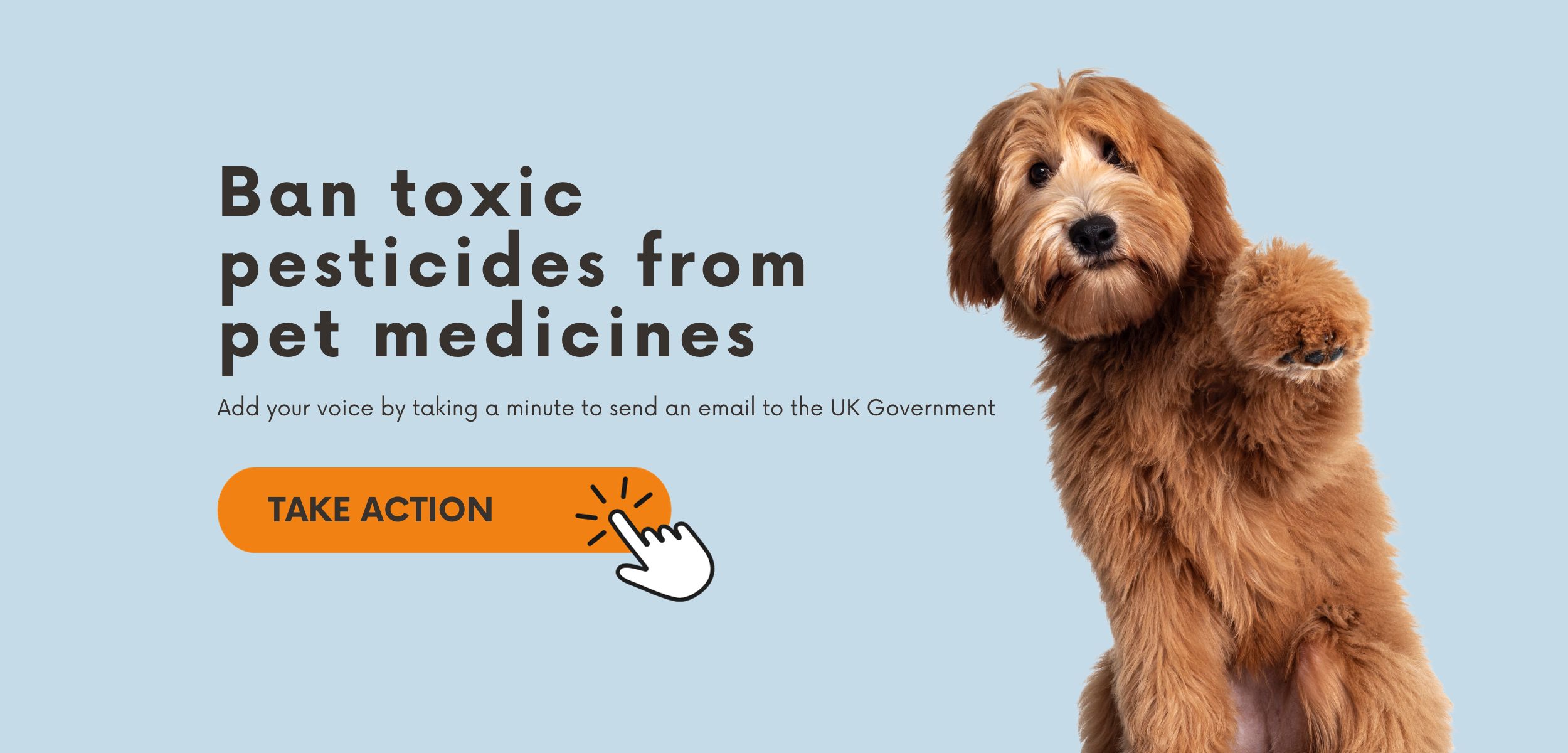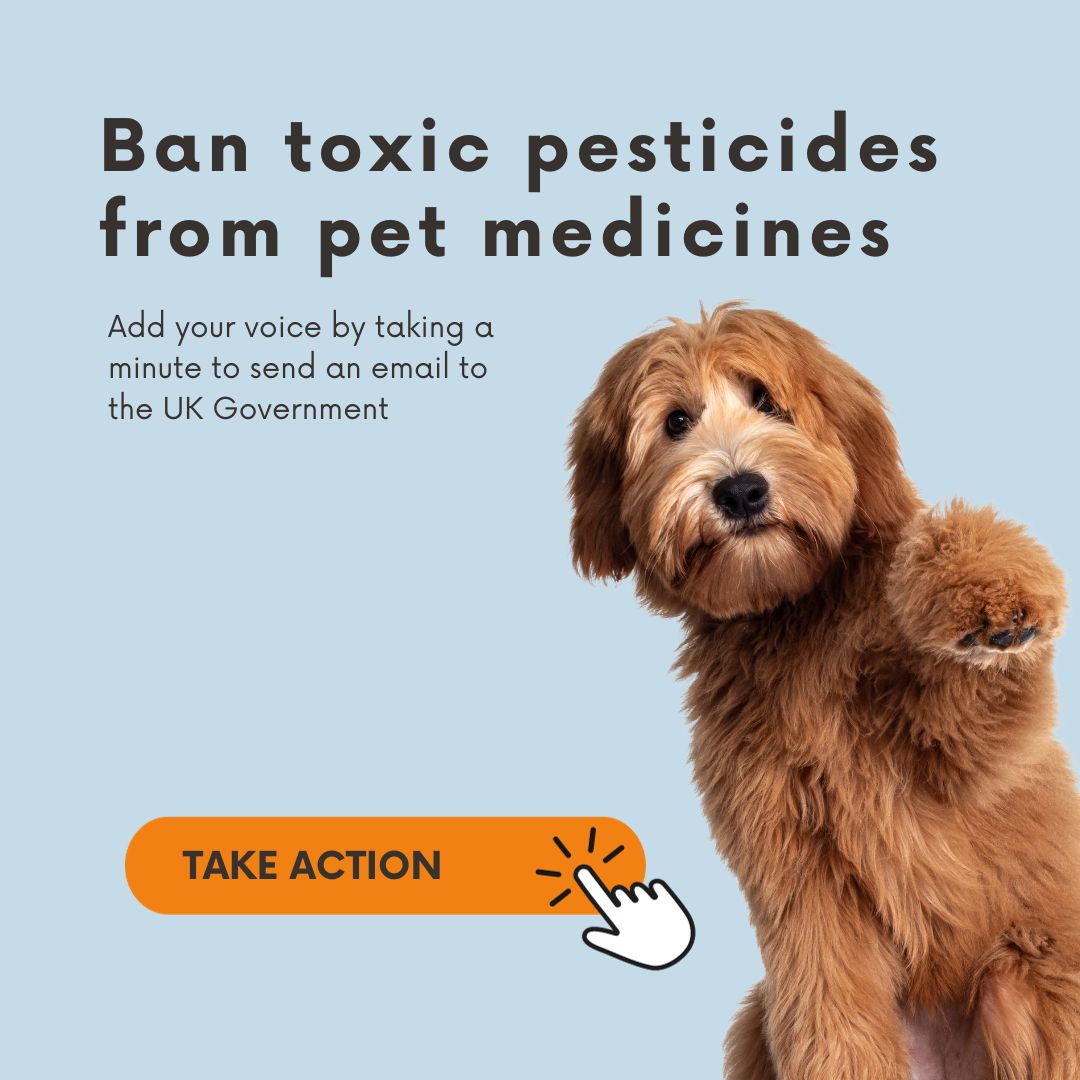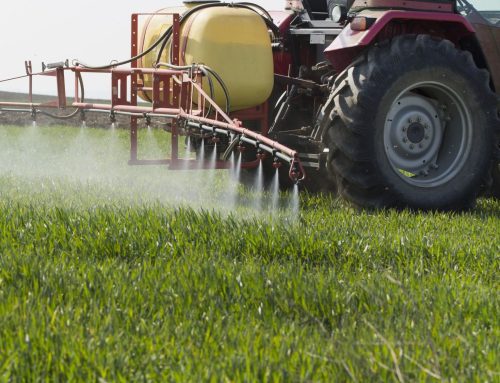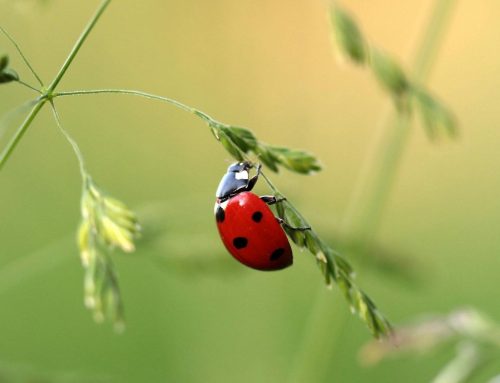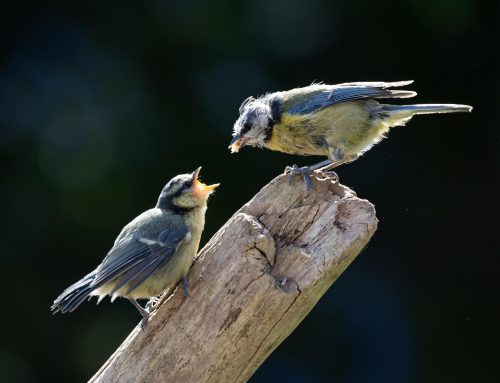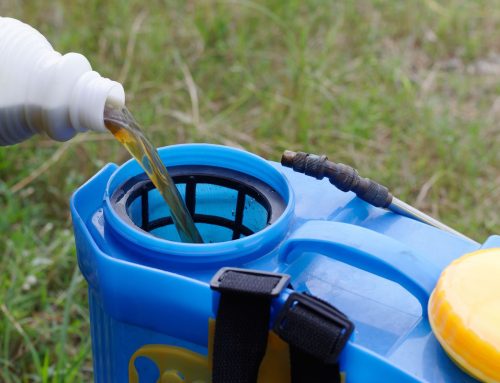Pesticides used in veterinary medicines for dogs and cats are leaching into the natural environment. New analysis launched today reveals that five chemicals deemed to be too environmentally-damaging to be used as pesticides on crops are still being routinely included in pet medicines. Pointing out the inconsistency of this approach, researchers highlight evidence that these chemicals – used widely in tick, flea and worm treatments for cats and dogs – are polluting rivers across England, posing a risk to aquatic ecosystems.
The new analysis of Environment Agency data shows that three of the five insecticides – fipronil, permethrin and the controversial neonicotinoid imidacloprid – are present in English rivers in concentrations that exceed accepted safe limits for wildlife. The remaining two chemicals – dinotefuran and nitenpyram (both neonicotinoids) – are not present in Environment Agency testing data.
Twenty-four environmental and veterinary organisations – including The Progressive Veterinary Association, Veterinary Poisons Information Service, RSPB and The Wildlife Trusts – have written an open letter calling on the UK Government to ban these five toxic pesticides from being included in medicines for cats and dogs. The groups point out that there are more than three hundred alternative products available for pet owners, including many major brands, so a ban is highly unlikely to have any impact on animal welfare.
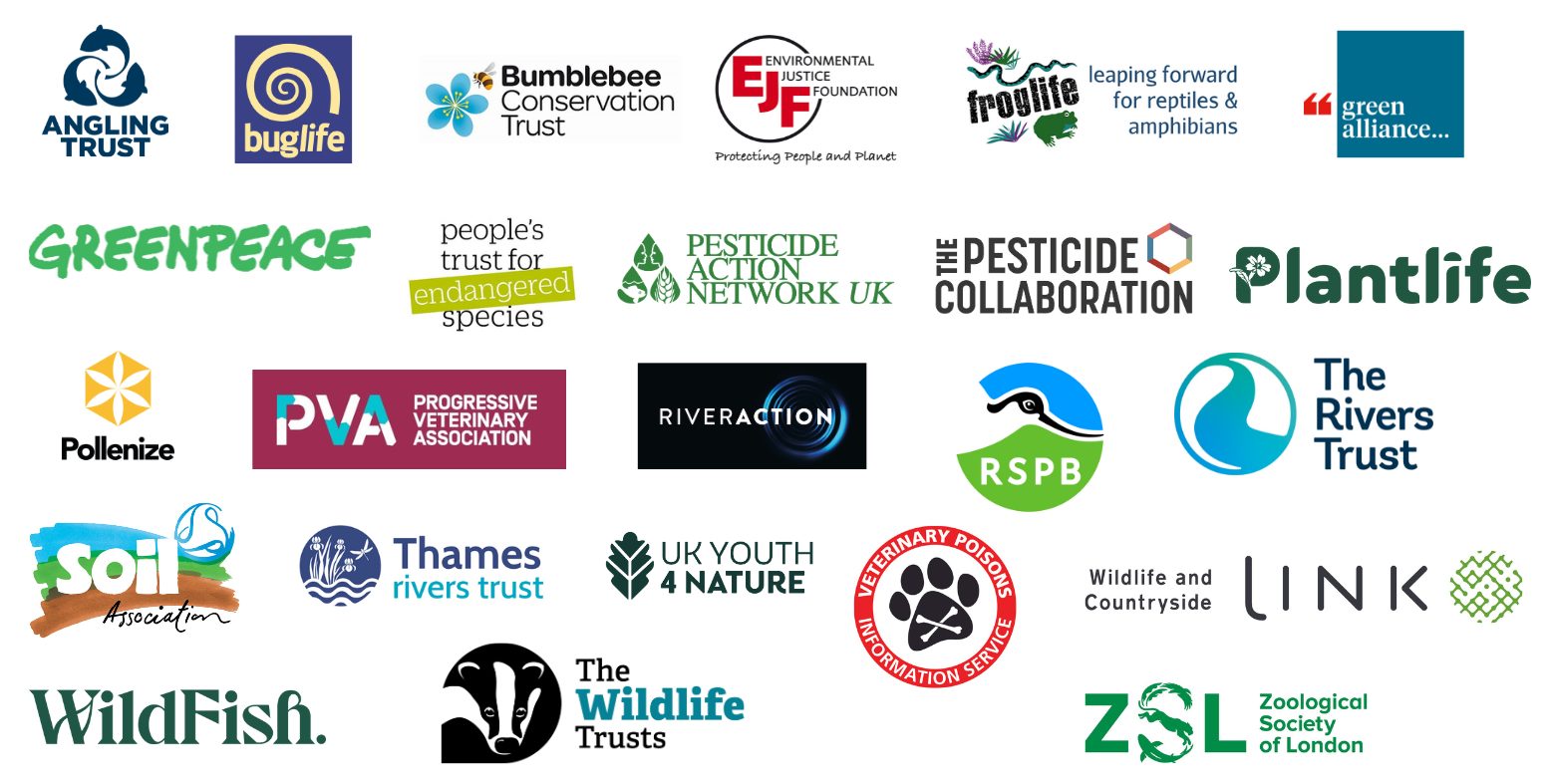
“It simply makes no sense to block these chemicals from being used on crops in order to protect the environment, while allowing them to be routinely applied by millions of pet owners every month. If we want to tackle chemical pollution, then we urgently need to close this loophole. Where alternatives exist, which they absolutely do in the case of pet medicines, chemicals known to be harming wildlife should be taken off the market.”
Josie Cohen, Head of Policy and Campaigns, PAN UK
The call comes as new analysis of official Environment Agency river water quality data by the Rivers Trust and Wildlife and Countryside Link reveals that toxic insecticides found in pet medicines are present at 109 of 283 river sites around England. At all 109 sites, at least one of the five chemicals was above proposed EU levels that are considered safe for aquatic life. Specifically:
- Fipronil was by far the most pervasive, found in 105 (37%) of river sites tested. In all of these sites, levels of fipronil exceeded the Predicted No Effect Concentration (PNEC), the level above which adverse effects for aquatic wildlife can be expected. Although fipronil has never been used on agricultural crops in England, multiple sites were at over 100 times this level, and two sites at over 1,000 times.
- Imidacloprid was detected at 22 (8%) out of 283 sites. In just under half of these sites, the amount of imidacloprid was above safe levels for wildlife proposed by the EU’s Environmental Quality Standards. Imidacloprid was banned for use on outdoor agricultural crops in 2018.
Though there were only a limited number of site detections of permethrin (four sites in total) all had between three and seven times the safe level as determined by the EUs proposed Environmental Quality Standards. Permethrin has been banned for use on agricultural crops since 2002.
These results would appear to confirm pet medicines as the most likely source of contamination. Fipronil is found in by far the most pet medicine products (483), with imidacloprid coming second (176) and permethrin third (90). Dinotefuran and nitenpyram, which are not tested for, are only contained in 12 and 9 products respectively. Recent studies indicate that these chemicals are finding their way into rivers from a range of different routes including contaminated household wastewater resulting from washing treated pets and their clothes and bedding, urinary and faecal excretions, and allowing treated dogs to swim in rivers.
“Giving pets the highest standard of care need not come at the expense of nature, but these findings suggest that too many insecticides and other toxic chemicals are still ending up in our rivers. The Government could show real leadership by banning these harmful substances to support vets and animal lovers in shifting to the less polluting alternatives, which are clearly available”.
Richard Benwell, CEO of Wildlife and Countryside Link
For the past five years, there has been rising concern among vets regarding the environmental impact of tick, flea and worm treatments (known collectively as ‘parasiticides’). According to a 2021 survey by the British Veterinary Association, 98% of companion animal vets said they felt concerned about the impact of some parasiticides on the environment, with 42% feeling very concerned.
“Every industry has a role to play in helping to tackle the nature crisis and vets are no different. We have known about the environmental impacts of parasiticides for many years already. We need to move beyond the plethora of voluntary guidance that exists if we want to reverse wildlife declines. That is why the PVA is supporting the call for a ban on these chemicals.”
Andre Menache, veterinary surgeon and Director of the Progressive Vets Association (PVA)
“Despite many statements of concern from both veterinary and environmental groups over the years, concrete improvements or major reductions in use have not occurred. It is high time to adopt a precautionary approach and ban these five chemicals that we know are harmful to wildlife.”
Josie Cohen, Head of Policy and Campaigns, PAN UK
Further reading:
Find out more about pets and their exposure to pesticides in our new report here.
Find out more about the problem with pesticides in veterinary medicines here.
Please let PAN UK know if you think your pet has been poisoned by pesticides so that we can monitor the national picture and continue to build the case for change. Our pet poisoning reporting form is available here.

